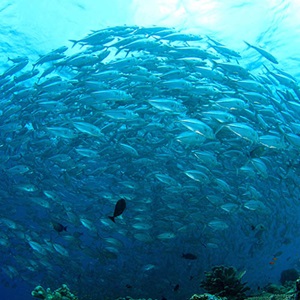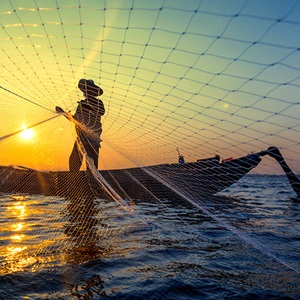Close to 38% of global fish stocks are overfished, according to the UN’s 2024 fisheries report. The necessity for well-managed fisheries is more urgent than ever and progress needs to be rapid.
Over 500 fisheries worldwide are already certified to the MSC Fisheries Standard, the leading benchmark for sustainable fishing. But many other fisheries still face obstacles to achieving sustainability.
For fisheries not yet operating at a level that meets the MSC Standard, the MSC Improvement program provides a framework to make progress.
It complements the existing efforts of the many fisheries improvement projects (FIPs) working around the world.
Fisheries in the Program are expected to improve stock management and environmental impacts so they can be assessed against the Fisheries Standard within five years. To achieve this, they will:
- Undergo an independent assessment to identify necessary improvements
- Measurably improve practices in line with a viable action plan
- Receive regular reviews of progress by accredited independent assessment bodies
Products from fisheries in the MSC Improvement Program may carry a statement on the back of packaging if they meet certain conditions. They cannot use the blue MSC label, which is reserved for products from certified sustainable fisheries.
The Improvement Program for partners
Improvement in action
The In-Transition to MSC pilot program, which began in 2019, laid the groundwork for the MSC Improvement Program. The pilot required fisheries to seek regular independent verification of improvements being made towards meeting our Standard.
In August 2024, ICV Africa, a component of the South African Albacore tuna pole and line fishery became the first fishery to successfully achieve MSC sustainability certification following inclusion in the ITM program.
“The MSC works with hundreds of committed fisheries around the world that are leaders in sustainability. However, not all fisheries are currently able to meet our Fisheries Standard, despite the growing urgency. This initiative aims to incentivize fisheries to improve their sustainability practices. In doing so, we support not only the health of the oceans and future seafood supplies but also the livelihoods of the communities that rely on fishing”
MSC

/haddock_045_sunrise-400.tmb-thumb300.jpg?Status=Master&Culture=en&sfvrsn=71461389_1)

